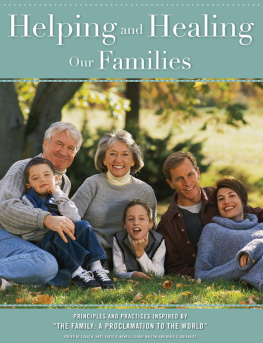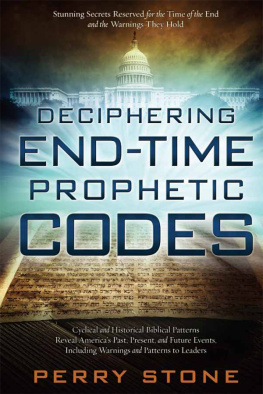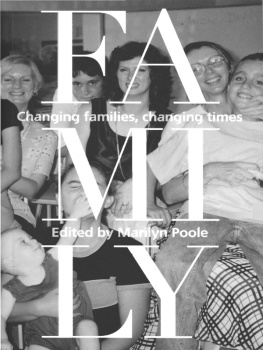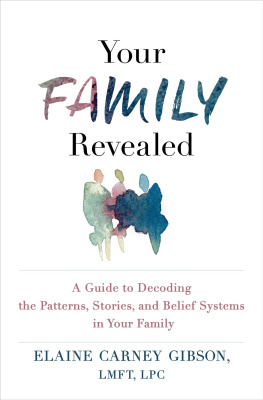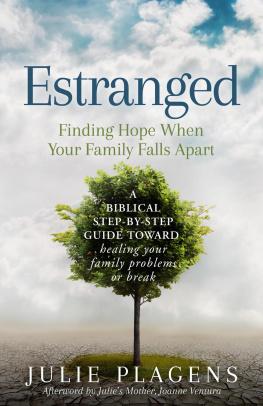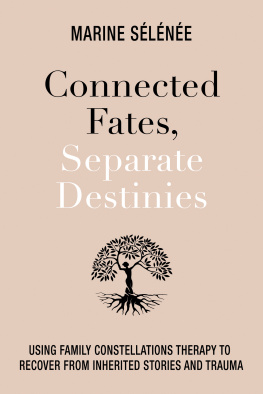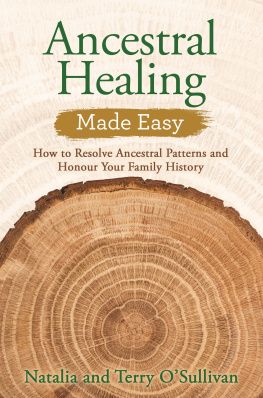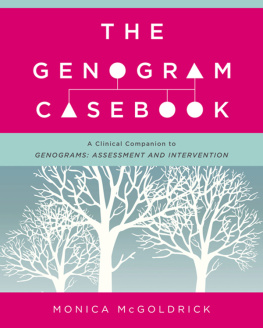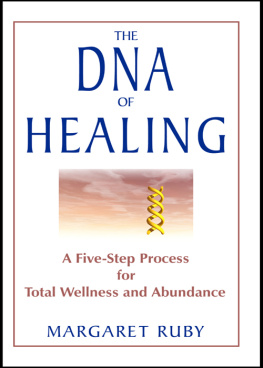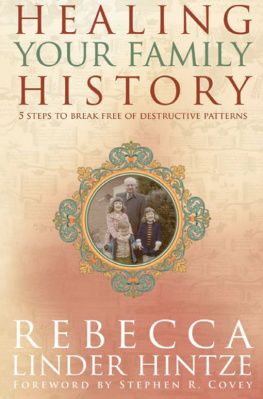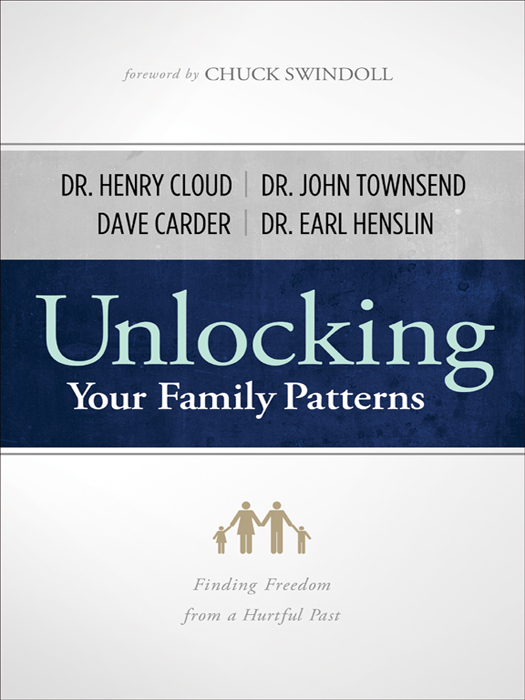Praise for
Unlocking Your Family Patterns
Written by long-standing friends of the AACC, these seminary-trained clinicians bring their best insights to Unlocking Your Family Patterns. These guys know what they are talking about, and this book will guide you on lifes journey so that you dont repeat what you didnt like about some of your own family experiences. Starting with famous families of the Bible, you will begin to understand why each of us, in our own families, needs daily help to do things differently. Unlocking Your Family Patterns will walk you through that journey.
Dr. Tim Clinton, president,
American Association of Christian Counselors
DR. HENRY CLOUD | DR. JOHN TOWNSEND
DAVE CARDER | DR. EARL HENSLIN
Unlocking
Your Family Patterns

Finding Freedom from a Hurtful Past
MOODY PUBLISHERS
CHICAGO
1991, 1995, 2011 by
T HE M OODY B IBLE I NSTITUTE OF C HICAGO
Unlocking Your Family Patterns is a revised edition previously published as Secrets of Your Family Tree.
All rights reserved. No part of this book may be reproduced in any form without permission in writing from the publisher, except in the case of brief quotations embodied in critical articles or reviews.
All Scripture quotations, unless otherwise indicated, are taken from the New American Standard Bible, Copyright 1960, 1962, 1963, 1968, 1971, 1972, 1973, 1975, 1977, 1995 by The Lockman Foundation. Used by permission. (www.Lockman.org)
Scripture quotations marked NIV are taken from the Holy Bible, New International Version, NIV. Copyright 1973, 1978, 1984 by Biblica, Inc. Used by permission of Zondervan. All rights reserved worldwide.
Scripture quotations marked NLT are taken from the Holy Bible, New Living Translation, copyright 1996. Used by permission of Tyndale House Publishers, Inc., Wheaton, Illinois 60189, U.S.A. All rights reserved.
Scripture quotations marked KJV are taken from the King James Version.
Scripture quotations marked The Message are from The Message, copyright by Eugene H. Peterson 1993, 1994, 1995. Used by permission of NavPress Publishing Group.
Edited by: Annette LaPlaca
Cover design: Thinkpen Design
Interior design: Smartt Guys design
Library of Congress Cataloging-in-Publication Data
Unlocking your family patterns : finding freedom from a hurtful past /
Henry Cloud [et al.]. [New ed.]
p. cm.
Rev. ed. of: Secrets of your family tree. 1991
Includes bibliographical references.
ISBN 978-0-8024-7744-6
1. FamiliesReligious life. 2. Dysfunctional families. I. Cloud, Henry.
II. Cloud, Henry. Secrets of your family tree. III. Title: Finding freedom
from a hurtful past.
BV4526.3.U55 2011
248.86dc22
2010050098
We hope you enjoy this book from Moody Publishers. Our goal is to provide high-quality, thought-provoking books and products that connect truth to your real needs and challenges. For more information on other books and products written and produced from a biblical perspective, go to www.moodypublishers.com or write to:
Moody Publishers
820 N. LaSalle Boulevard
Chicago, IL 60610
1 3 5 7 9 10 8 6 4 2
Printed in the United States of America
Contents
Part 1
DYSFUNCTION IN FAMILIES OF THE BIBLE
Part 2
CONTRIBUTING FACTORS IN FAMILY DYSFUNCTION
Part 3
FAMILY HEALTH: HOW TO DO IT RIGHT WHEN YOU LEARNED IT WRONG
Appendix A:
Helping the Helpers: Dysfunctional Families in The Ministry Alice Brawand, M.A.
Appendix B:
Resource List from the Authors
Appendix C:
The Twelve Steps of Alcoholics Anonymous
HOW times have changed!
Back in the forties when I was a boy, the church and Christian circles had neither time nor tolerance for lifes raw realities. Words such as rape and incest, homosexuality, and child molestation were never heard from the pulpit and seldom, if ever, discussed in small groups. Those who were the involuntary victims of divorce or the objects of brutality were left to suffer in silence, feeling alienated and ashamed.
By the time I entered the ministry in the early sixties, the evangelical Christian community was a bit more open and realistic but still guarded and certainly reluctant to get involved. Families who struggled could find perhaps a caring pastor or a compassionate counselor, but the hope of receiving help from support groups in the church was virtually nonexistent. Those in the church who wrestled with an addiction were more often than not told to confess their sins and get a grip on themselves. And it wasnt uncommon for preachers to use the Bible as the basis for such exhortations. If the troubled individuals didnt snap out of it, they were labeled as sick or, worse, rebellious.
The painful truth has finally been allowed to come out of the closet. At long last, pastors and congregations have stopped whispering and started addressing the secret struggles that plague many, if not most, families. Rather than pounding pulpits and demanding instant change, we have acknowledged that dysfunctional families are often in the church, that recovery takes time and is a painful process, and, in fact, that the process cannot be accelerated by cramming more and more convicting Scriptures down the throat of the abandoned or the abused. Guilt and shame are not friends of grace that prompt inner healing.
One of the benefits emerging from the long-awaited and much-needed change is a growing number of books that are designed to help those who hurt find healing. Unfortunately, many of these books are long on psychology and short on theology. The timeless principles of Gods Word are eclipsed by human reasoning and man-made techniques and conclusions. They may sound plausible and make good sense, but they lack the power to effect lasting recovery. Frequently, these books reflect the bias of one authors pet hobbyhorse.
The book you hold in your hand is different. It is the result of four authors work, not one. It has been written by those regularly in touch with reality, not dreamers dabbling in theory. Furthermore, it is based on the rock-hard truths of Scripture, not the sandy soil of nice-sounding ideas and suggestions dredged up from a collection of academic textbooks. Again and again you will find biblical examples and scriptural references, but they fit; they arent forced. This balanced approach reassures the reader that he or she is not being led astray.
But dont think this is just another book on troubled families. This one is hard-hitting, insightful, unpredictable, direct, and refreshingly candid. Best of all, it is realistic. The book promises no super-quick fixes, no surefire guarantees, and no airtight solutions. It does, however, confront the issues that must be addressed, and it does ask the questions that need to be answered in order to find recovery.
I am encouraged that you are about to discover some essential secrets of your family story and that the all-important process of inner healing will soon be under way. Consider yourself fortunate to be living in the twenty-first century. It is doubtful that a book this straightforward would have even been published fifty years ago. If it had been, most in the church would never have read it.


